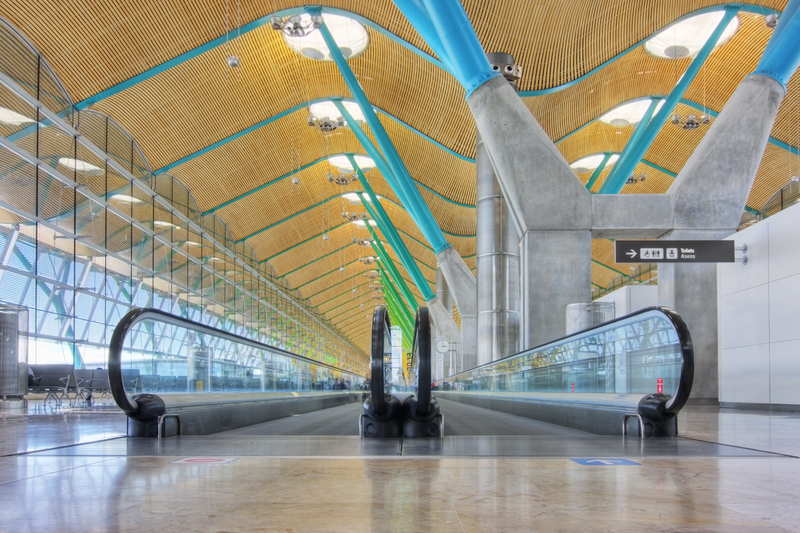Madrid-Barajas, Spain’s largest airport, is embarking on a new chapter: Starting Thursday, July 24, Aena, the public company operating Spain’s airports, will enforce a strict overnight stay ban in the terminals of Adolfo Suárez Madrid-Barajas Airport. This measure aims to strengthen the airport’s role as a pure transit space and prevent the terminals from being used as informal accommodation.
Why the Overnight Ban at Madrid-Barajas?
The decision is not surprising. In recent months, particularly during warmer seasons, Barajas Airport has increasingly been used as a sleeping place by individuals. Reports indicate that between 300 and 400 people spent the night in public areas – a mix of vulnerable homeless individuals and travelers attempting to save on accommodation costs. This led to growing concerns regarding the safety, cleanliness, and overall functionality of the airport. Aena emphasizes that the terminals are primarily designed as “pure transit structures” and are not suitable for long-term stays.
What Do the New Rules Mean for Travelers and Affected Individuals?
The new regulations stipulate that access to the terminals during night hours is exclusively permitted for passengers with valid boarding passes, authorized personnel, and their companions. Aena has already increased security measures at the entrances of Terminals 1, 2, and 4. Security personnel will verify documents to ensure that only authorized individuals are admitted to spend the night in the building.
Aena stresses that this measure is by no means intended to criminalize homelessness. Rather, it aims to ensure safety and order for all airport users.
Collaboration with Social Services: Aid for Those in Need
To support individuals affected by the new policy, Aena is working closely with Madrid’s municipal social services and third-sector organizations. Alternative accommodations and comprehensive support are being offered, including through the municipal La Latina women’s shelter and other assistance centers. In recent weeks, social workers have already been active in the terminals to inform people about the upcoming changes and to offer support options. This proactive approach underscores Aena’s commitment to social responsibility.
Europe-wide Trend: Barajas in Context
The overnight stay ban at Barajas is part of a broader trend observed across Europe. Similar restrictions have already been introduced in major transport hubs in parts of Italy, France, and the United Kingdom. While some stakeholders have criticized the policy, arguing that it could further push vulnerable individuals into crisis, Aena remains committed to the goal of protecting airport users, preventing overcrowding, and ensuring the efficient and safe operation of the airport. Barajas is to remain a flagship airport that fulfills its core function as a gateway to the world.




